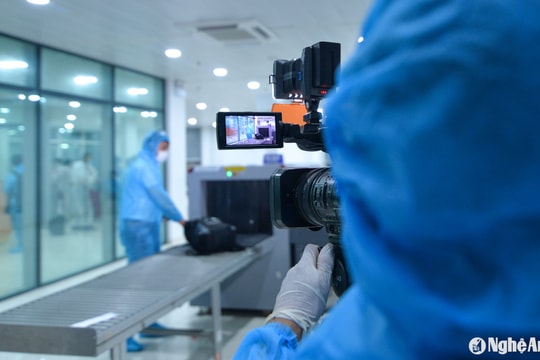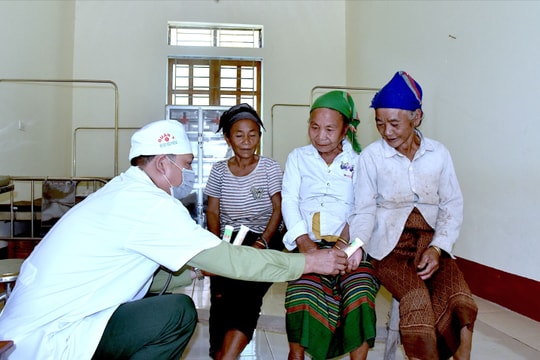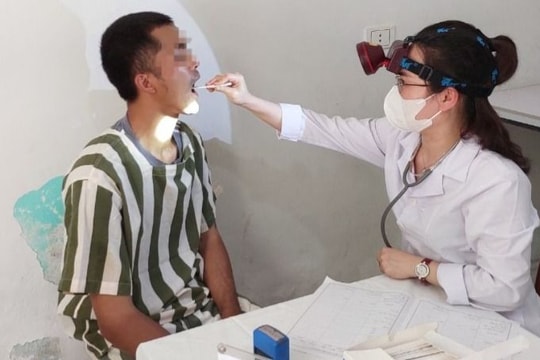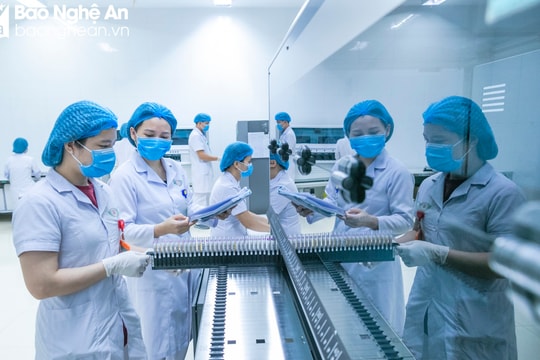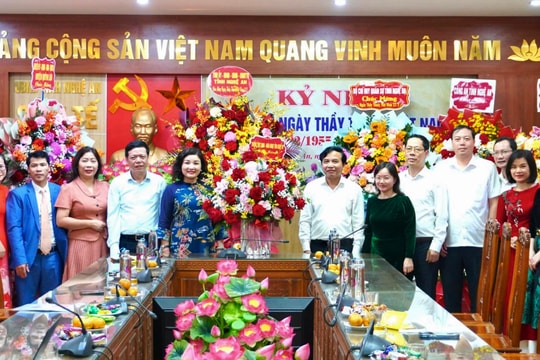Shining medical ethics of Nghe An doctors - Part 2
Nghe An has many medical staff who are shining examples of professional ethics. They love their profession, love people and silently dedicate themselves to the cause of caring for and protecting public health. The white blouse they wear is the embodiment of knowledge, honor and the noble personality of a physician.

Lesson 2:
Silent dedication
Nghe An has many medical staff who are shining examples of professional ethics. They love their profession, love people and silently dedicate themselves to the cause of caring for and protecting public health. The white blouse they wear is the embodiment of knowledge, honor and the noble personality of a physician.
Pioneers in the fight against Covid-19
Although the Covid-19 pandemic has receded, the haunting and consequences of this pandemic are still imprinted in the minds of many people. Doctor Bui Tien Hoan - Deputy Head of the Department of Parasitic Viruses, Center for Tropical Diseases, Nghe An General Hospital is one of those who have suffered such heavy consequences. 3 years of fighting the Covid-19 pandemic has made him look much older...
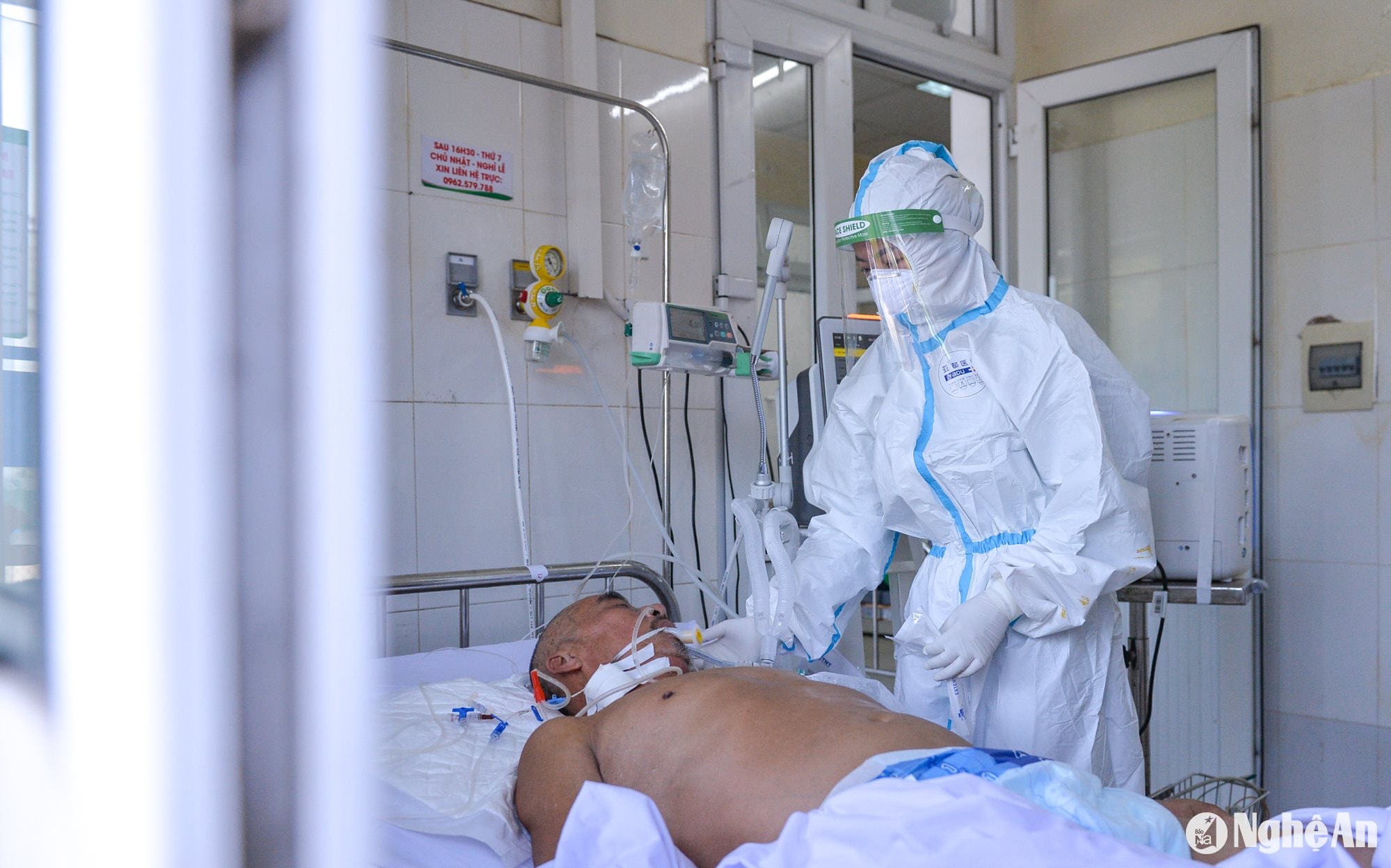
When the first cases appeared in Nghe An, Dr. Bui Tien Hoan was the first person to take charge of the quarantine area of the Tropical Disease Center (Nghe An General Hospital) - later the Nghe An Intensive Care Center No. 1 to treat severe and critical Covid-19 patients. His task was to manage and directly treat patients in the quarantine area.
Treating Covid-19 patients, the hardships and difficulties that medical staff here have to face are countless. Every day, medical staff here have to work 2 shifts of 12 hours, 3-4 times more work than their colleagues outside. During those 12 hours, they often sweat in protective “beekeeping” suits; do not eat, do not drink, do not sleep, do not go to the toilet; are always in a state of motion: examining, injecting, putting patients on ventilators, performing surgery… without a minute of rest. Before one patient is finished, another patient needs intervention.
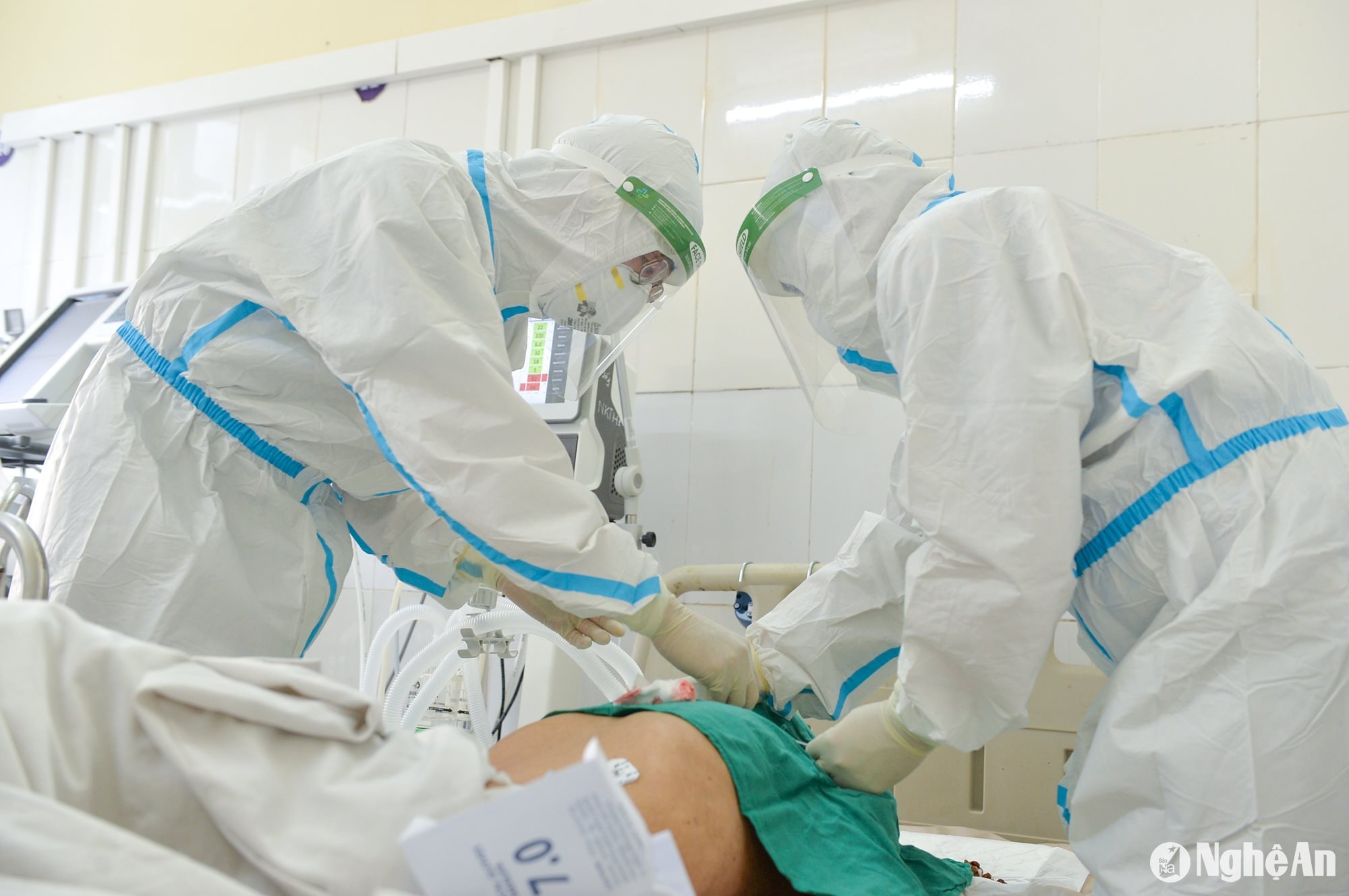
Doctor Bui Tien Hoan said: "Prevention and control of epidemics is my specialty. The Covid-19 pandemic is threatening the lives of many patients. If I don't take the lead in taking the task of entering the quarantine area to treat patients, who will? I am an active person, passionate about sports and travel. However, more than ever, I think I need to sacrifice my personal interests and passions to voluntarily devote myself, for the lives of patients and public health."
Working in the quarantine treatment area, the pressure on each medical staff is very large. At the end of 2021 - the beginning of 2022, the Covid-19 epidemic broke out strongly in the community. Every day, Nghe An recorded over 2,000 cases; among them, there were cases of people being treated for other diseases, people with underlying diseases... Therefore, the number of people with severe and critical Covid-19 is very large. Nghe An Intensive Care Center No. 1 is often overloaded, with over 230 patients being treated every day. Meanwhile, the scale of the center is 100 beds with over 100 medical staff. The center was overloaded but patients from lower levels, floors 1 and 2 were still transferred continuously.
.png)
For 2 years (2021-2022), Dr. Bui Tien Hoan, like many other medical staff, hardly went home but ate, slept, and worked continuously in the treatment area for severe Covid-19 patients. Originally a young, handsome doctor, Dr. Bui Tien Hoan quickly became "disfigured" in appearance and appearance. His face was gaunt, covered with mask marks, his skin was wrinkled, and always red from irritation. And until now, the traces of that time of fighting the epidemic are still present.
After the pandemic passed, without a minute of rest, Dr. Hoan and his colleagues rushed into the battle with many other diseases. Dr. Hoan was again passionate about conquering "difficult problems" to save patients with infectious diseases being treated at the Department of Parasitology, Center for Tropical Diseases - where he has worked for 16 years. Dr. Bui Tien Hoan confided: "I always want to help people in difficult circumstances; I want to directly examine patients, and apply my professional knowledge to save people. Every time I find a solution and successfully save a patient's life, it is boundless happiness. This is the pride of the medical profession, not every profession has it."
Silently on the high mountain
In Nghe An, there have been many medical staff who day and night "have to throw themselves into dirty places to clean them, have to throw themselves into places of suffering to reduce suffering" (Uncle Ho's teachings on doctors in 1946). Doctor Tran Van Cong - Deputy Director of Tuong Duong District Medical Center is one of them. During the Covid-19 pandemic, Doctor Cong was the "permanent" person at hot spots to coordinate epidemic prevention, triage, quarantine, sample collection, treatment... for people. When a case broke out, he was present; when the outbreak was controlled, he and his colleagues moved to another hot spot.
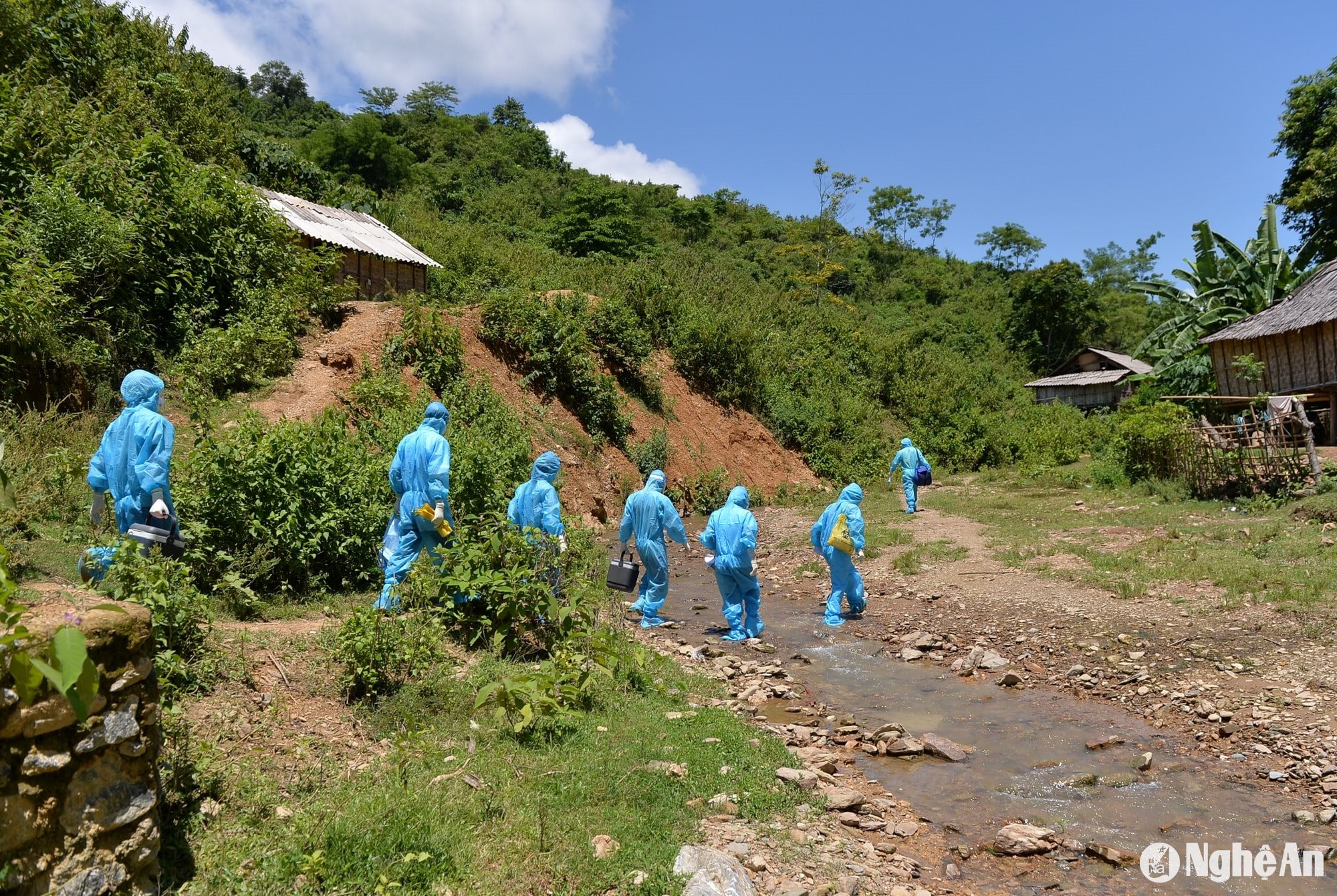
Meeting Dr. Tran Van Cong at the Covid-19 outbreak in Cham Puong village (Luong Minh commune) in July 2021; the outbreak in Nhon Mai commune in December 2021; the outbreak in Na Khom village (Yen Na commune) and the outbreak in Vang Mon village (Nga My commune) on December 26-29, 2021..., he was always seen sweating; dark circles under his eyes due to lack of sleep and his skin was dark. Fighting the epidemic in the mountainous area was hard, but he had never once complained about the difficulties. He and his colleagues quietly and diligently fought the epidemic, working with the highest determination, just hoping to soon bring peace back to the village.
Sharing about the work of disease prevention and control, Dr. Tran Van Cong said, "I'm used to it." His medical career has been days after days, months after months of fighting against the epidemic. In 1990, after graduating from medical school, he volunteered to work at the Ky Son District Medical Center. At that time, in the most remote and highest border district of Nghe An province, malaria, cholera, and dysentery were rampant. "New soldier" Tran Van Cong had not yet had time to warm his feet when he and his colleagues from the previous class rushed to fight the epidemic with their backpacks.
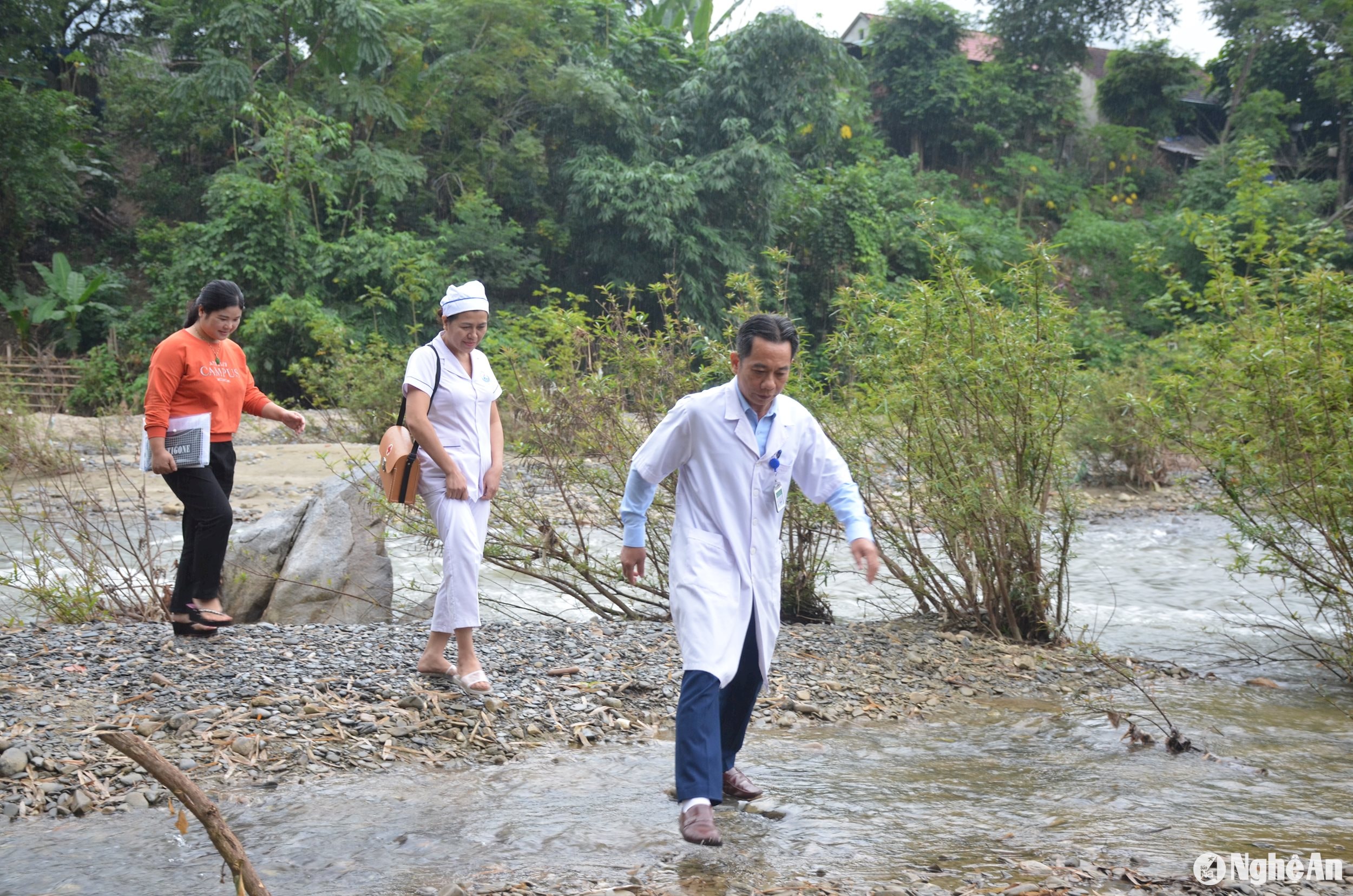
In those years, Nghe An was the national malaria hotspot. The epidemic occurred continuously. All mountainous and midland districts had the epidemic. Villages in the western part of Nghe An were “devastated” by malaria. There were villages where 90% of the people carried malaria parasites; rice was ripe in the fields but there were no healthy people to harvest it. In Ky Son district alone, on average, about 50-60 people died each year from this disease.
There were no roads or means of transportation, so he and his colleagues walked over mountains and forests to villages with the epidemic. In the villages, medical staff carried out propaganda, mobilized for prevention and control, took samples to detect malaria, sprayed pesticides, treated mosquito nets and provided treatment. After the epidemic in one village, they moved to another to fight the epidemic. Each working trip usually lasted 2-3 months... The forest was sacred and the water was poisonous. The malaria attacks lasted for a long time. General practitioner Tran Van Cong's skin turned "permanently dark" from then on.

In 1993, physician Tran Van Cong applied for a transfer to Tuong Duong District Medical Center to make it easier to take care of his elderly mother. The office was close to home, but he still had to be away from home often. At this time, epidemics in mountainous districts in Nghe An province, including Tuong Duong district, had temporarily subsided, however, the risk still existed, waiting to break out. The main reason was that people's education and awareness of disease prevention were not high. To prevent and fight epidemics, the District Medical Center often organized working groups to go to villages and communes to propagate and monitor. Each trip usually lasted several weeks. Physician Tran Van Cong was a key member of the working groups.
During his work, he constantly learns from his colleagues to improve and perform his duties well. The more he studies, the more knowledge and experience he has to treat various diseases. With his good professional capacity, he was recognized by the District Health Center and the Department of Health and appointed as Head of the Department, then Deputy Director of the center. Doctor Tran Van Cong has made many contributions to the implementation of national target programs on health; disease prevention and control in Tuong Duong district.
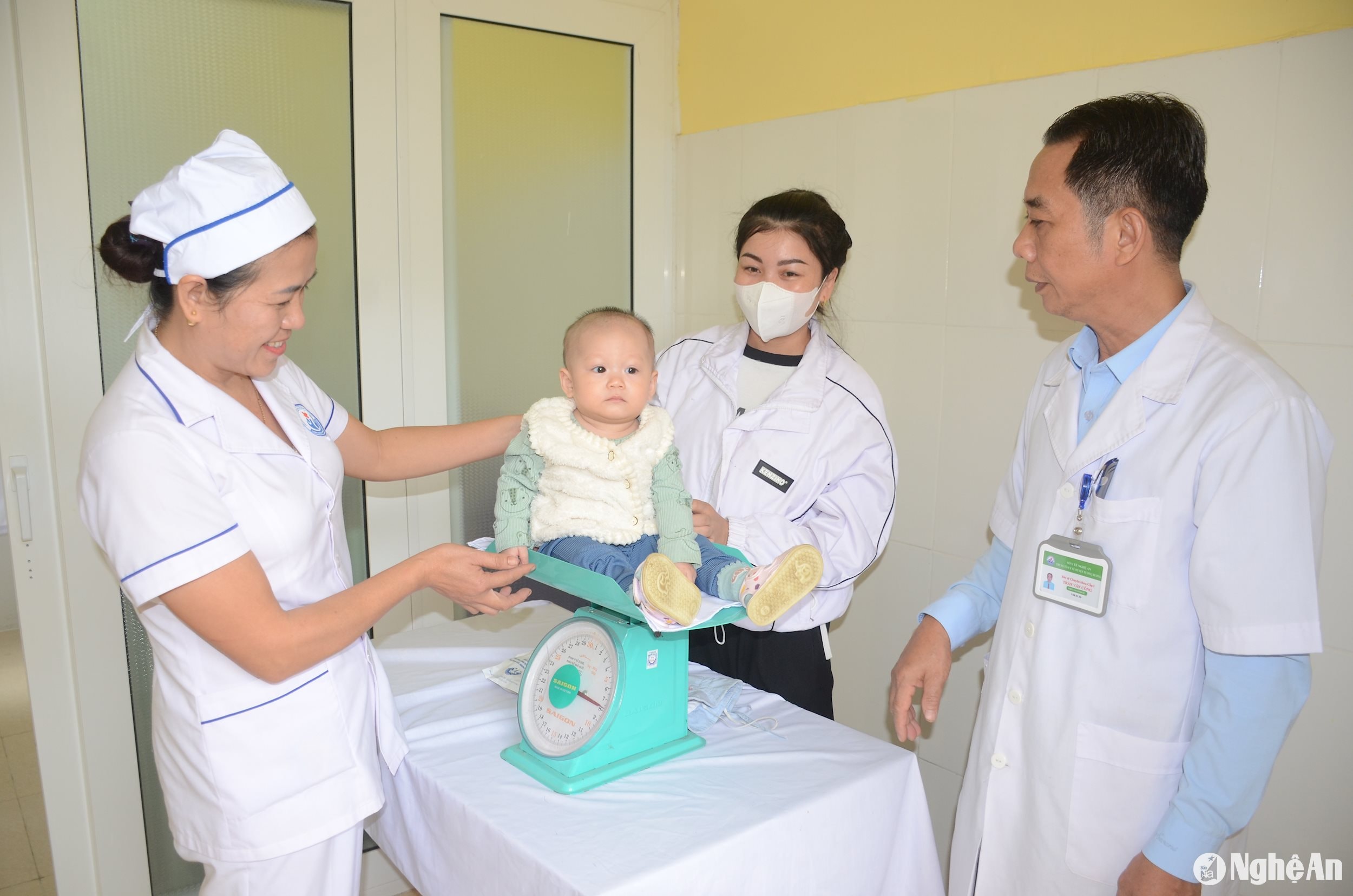
Doctor Tran Van Cong's life is closely linked to anti-epidemic activities. He said: "In 2007, after studying to become a doctor, I threw myself into HIV/AIDS prevention and control work. That year, Ban Ve Hydropower Plant was built. The negative side of the development process caused drug addiction and HIV/AIDS to arise. In the following years, there was a meningococcal meningitis epidemic in Minh Tien village (Luong Minh commune), a measles epidemic in Pieng Cooc village (Mai Son commune), a Covid-19 epidemic, a diphtheria epidemic... When the epidemics happened, I did not feel tired or exhausted, but only felt that I needed to try and contribute more to prevent the epidemic and take better care of people's health. People's health is the driving force of the medical profession."
When the epidemic subsided, Dr. Cong, like many other medical staff in Nghe An, entered into other silent "battles", which were: Preventing and fighting child malnutrition; preventing and fighting HIV/AIDS; ensuring food safety; implementing expanded immunization; implementing digital transformation in healthcare; improving the capacity for medical examination and treatment at grassroots healthcare facilities; caring for reproductive health... In this "battle", Dr. Tran Van Cong was always pondering and thinking about questions that had no specific answers: "How to prevent and fight child malnutrition when the parents of children are only a few months old and already working in the company? How to ensure food safety when there are many types of goods floating around? How to create jobs for addicts to effectively prevent and fight drugs and HIV/AIDS?"./.

